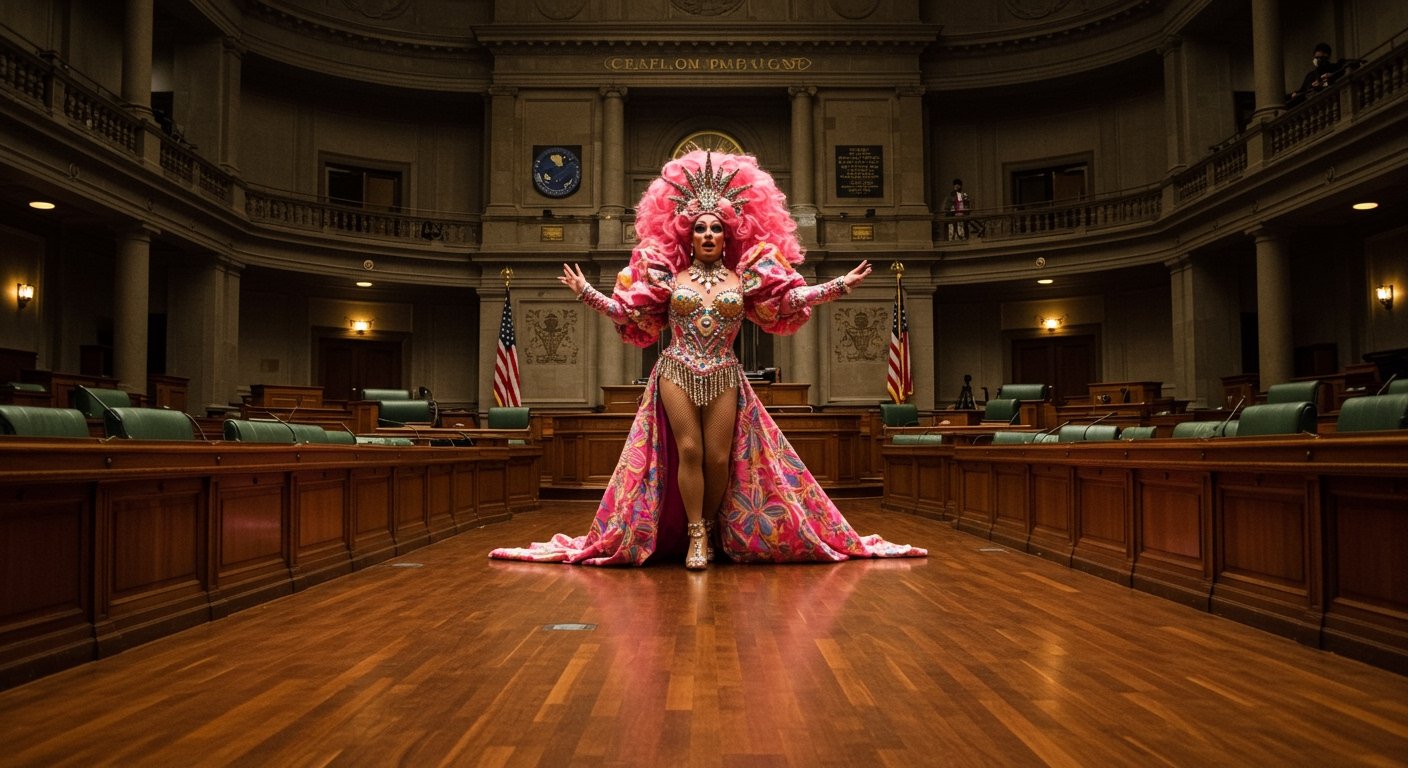SALEM, Ore. – The Oregon House of Representatives hosted a live drag performance on June 18, 2025, an event held to coincide with the adoption of House Resolution 3 (HR3) and intended to honor the rich history of Black drag in Oregon. Occurring during Pride Month and just ahead of the Juneteenth holiday, the unique legislative event drew both acclaim and pointed criticism from lawmakers.
Honoring Black Drag History: House Resolution 3
The centerpiece of the day’s legislative activity was the passage of House Resolution 3. This measure, sponsored by Representative Travis Nelson (D-Portland) and Representative Shannon Isadore (D-Portland), formally recognizes and honors Oregon’s significant history of Black drag. The resolution underscores the cultural contributions of Black drag artists to the state’s social fabric.
Notably, HR3 includes a detailed four-page list documenting Black drag performers in Oregon dating back to 1958. The sponsors, Representatives Nelson and Isadore, hold a unique position within the Oregon House; they are the only two Black Democrats currently serving in the chamber. Representative Nelson also carries the distinction of being the first openly LGBTQ+ African American legislator in Oregon’s history. Their sponsorship highlights the resolution’s focus on honoring intersecting identities and historical contributions.
The resolution itself saw broad support, being adopted by a significant 34-9 vote in the House.
The Performance: A Legislative First
Following or coinciding with the resolution’s adoption, the Oregon House chamber served as the venue for a live drag performance. This event, specifically hosted by House Democrats, featured two prominent Portland-based drag artists, Aqua Flora and Isaiah Esquire. The performers, also identified by the names Buire and Aqua Flo, delivered a lip-sync performance set to music by iconic Black female artists, Beyoncé and Aretha Franklin.
The decision to host such a performance within the legislative chamber marked a departure from typical legislative proceedings and was explicitly linked by House Democrats to the timing – Pride Month, a period dedicated to celebrating LGBTQ+ communities, and the approach of Juneteenth, commemorating the emancipation of enslaved African Americans.
Political Backlash and Criticism
The performance and the context surrounding it quickly became a focal point of political division within the state Capitol.
House Republicans were largely critical of the event. Reports indicated that most Republican members boycotted both the performance itself and the subsequent vote on HR3. Specific Republican leaders voiced their disapproval publicly.
Representative Dwayne Yunker (R-Grants Pass) took to social media platform X to describe the event as merely “political theater.” House Republican Leader Christine Drazan also issued strong criticism, labeling the performance an “ostentatious display” and asserting that it broke established chamber protocols.
The Republican opposition highlighted concerns about the appropriateness of a drag performance within the formal setting of the legislative body and questioned the use of time and resources for such an event.
A Note of Bipartisan Support
Despite the reported widespread boycott and criticism from the Republican caucus, the vote on HR3 did see some level of bipartisan engagement. At least one Republican member, Representative Cyrus Javadi (R-Tillamook), did not join the boycott. Representative Javadi reportedly voted in favor of the resolution and also spoke on the House floor expressing his support for the measure honoring Black drag history.
Clarification on Funding
Amidst the debate and criticism, questions arose regarding the cost associated with the performance. A spokesperson for the Oregon House Democrats issued a clarification regarding the funding for the drag artists. The spokesperson stated definitively that no state funds were used to pay the performers. They further explained that inviting guests to participate in opening ceremonies or special events is a regular and accepted practice within the legislative body, suggesting this performance fell under that established norm.
Conclusion: Culture, History, and Politics Collide
The event in the Oregon House on June 18, 2025, represented a confluence of cultural recognition, historical celebration, and political debate. By simultaneously passing a resolution honoring Black drag history and hosting a live performance, House Democrats aimed to visibly acknowledge and celebrate a community and its contributions during relevant commemorative months. The strong negative reaction from most House Republicans underscored the ongoing cultural and political divides present within the state legislature, making the event a notable moment in Oregon’s political and cultural landscape.




